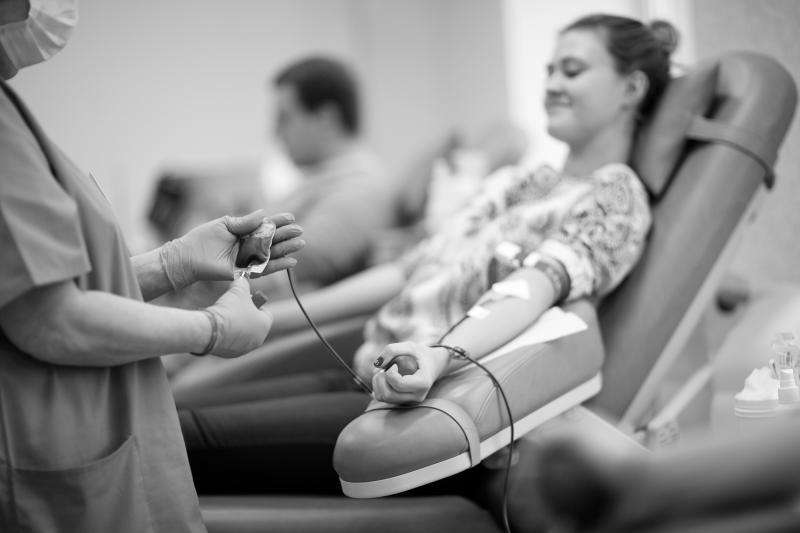Bioscience Technology chatted with Chris Ianelli, CEO of iSpecimen, to discuss the public attitude toward donating biological samples for clinical research, why participation in research efforts is important, and some roadblocks to sample collection.
Ianelli’s background is in medicine, with a Ph.D. in immunology, he was a pathologist. He attended medical school at Tufts University and then went on to train in Boston at Brigham and Women’s Hospital.
The idea behind iSpecimen came from replicating internal systems in place at the laboratories of Brigham and Women’s Hospital and Mass General, Ianelli said, which repurposed leftover biological samples, known as clinical remnants.
While not affiliated with BWH, iSpecimen works with healthcare providers, such as hospitals and laboratories, to put their clinical remnants to better use by connecting them to all different research efforts around the world. They also collect additional samples from willing patients and deliver them to scientists who need the specimen for research.
Biological samples are crucial for medical research and it appears the public supports these efforts.
In August, the National Institutes of Health published the results of a nationwide survey that gauged public opinion about the Precision Medicine Initiative Cohort Program, which aims to enroll 1 million Americans to lay a foundation for a precision medicine approach to healthcare.
The findings, published in PLOS ONE, showed that 79 percent of respondents support the program, and 54 percent said they would probably or definitely participate if asked.
Ianelli said he was “thrilled” when he saw the results of the study, because they not only complemented, but further validated the results of a study commissioned in December of 2015 by iSpecimen to determine if people were willing to donate their leftover samples after clinical testing or donate an extra tube of blood for research.
That study, released in January of this year, showed that the majority of American adults, (83 percent) were willing to allow the use of their clinical remnants and associated data for medical research. It also found that nearly-two thirds were willing to donate an extra tube of blood expressly for research purposes. Respondents were also willing to be contacted at a later date by their healthcare provider about specimen donation, with two-thirds saying yes.
The survey also dug into why people were willing to donate.
“Overwhelmingly, our survey results showed participants are philanthropic, that they want their samples not to be thrown away after clinical testing, but channeled into a research program,” Ianelli said. “And they are happy to do that without any compensation, just based on altruism and understanding that there is more good to be gained from that sample since it’s already collected.”
The top three emotional drivers for allowing remnant specimen use were:
- Others may benefit
- I would like to help sick people
- It feels good to help
The results of the iSpecimen and NIH survey are encouraging to Ianelli, because without people participating, there is no Precision Medicine Initiative Cohort Program, he said.
One thing the NIH survey found was that people want to be kept in the loop – 90 percent said they felt it was important to receive information back about their health.
While Ianelli feels it’s important that the participants get information back, he said it’s critical to be mindful about regulations as to what can be released and what form it takes, to make sure it’s not misconstrued as medical advice or direction.
One thing he thinks could and should be done, is to share back the aggregate results of studies that are completed using the patient samples. “Maybe [the information is] not directly about your specific DNA sequence, or your sample, but say in patients like you, here’s what we’re finding when we group them all together.”
While respondents of NIH survey said they would be willing to share a variety of personal information, such as genetic information (76 percent) and blood samples (73 percent), Ianelli said that there are some specimen that are more difficult to obtain. The more of a hassle that’s involved with obtaining a sample, the less likely patients will be willing to donate. For example, scientists working on central nervous system disorders or cognitive disorders like Alzheimer’s, would love to get cerebral spinal fluid samples, Ianelli said. “Naturally, patients are a little more reluctant to submit themselves to a spinal tap to have some spinal fluid removed, so those are harder to get.”
He also noted that solid tissue samples are difficult to get because there has to be a clinical scenario where it’s prudent to take out that tissue.
Ianelli wasn’t surprised by any of the material findings of the NIH survey, he said, but was surprised that the numbers were as high as they were in the iSpecimen survey. He said early on he didn’t expect such broad support, but now after years of working with patients that he’s realized people from all different backgrounds understand how valuable their samples are.
He also didn’t expect people over 60 to be less inclined to participate in the PMI Cohort program, which was one of NIH’s findings, but said it all comes down to education and patients understanding what happens with their sample.
“It’s really just about letting people know what the process is for doing testing and how it contributes to their overall health today, and how it can go much further if those samples are allowed to flow into the hand of researchers with the proper guardrails,” Ianelli said.
By guardrails he means that proper consent is obtained and privacy is in compliance with regulations that exist about how samples are used for research.
Privacy is one of the main concerns he comes across when asking for patient samples.
“We have these conversations with hospitals and patients all the time, and [privacy] is the one that comes up right away,” Ianelli said.
People want to know if their information can be used against them, or if it something they might regret doing if later down the line they can’t get insurance based on information from their donated sample. He also noted that people may be okay with their sample being used for one type of research, for example diabetes, but then may be concerned about another type, such as studies surrounding mental illness.
It’s hard to know what kind of objections people will have in the future, Ianelli said, but he thinks it’s something that should be built into the education process, to let participants know that their samples could be used for a variety of research needs.
The country will be watching to see if actual enrollment figures in the PMI Cohort Program reflect the positive attitudes shown in the recent survey.
Over the next five years NIH will award $142 million to the Mayo Clinic to create the world’s largest research cohort biobank to support the collection, storage and distribution of biospecimen.
In an unrelated partnership, iSpecimen has an agreement with the Mayo Clinic Center for Indivualized Medicine to be the exclusive channel partner for the Mayo Clinic Cancer/Normal Serum Biobank. This gives iSpecimen access to 130,000 frozen vials of serum that were collected between 1975 and 1990, from 17,000 consenting patients. The samples include 85 benign and malignant conditions and will be available to medical researchers through the company.







